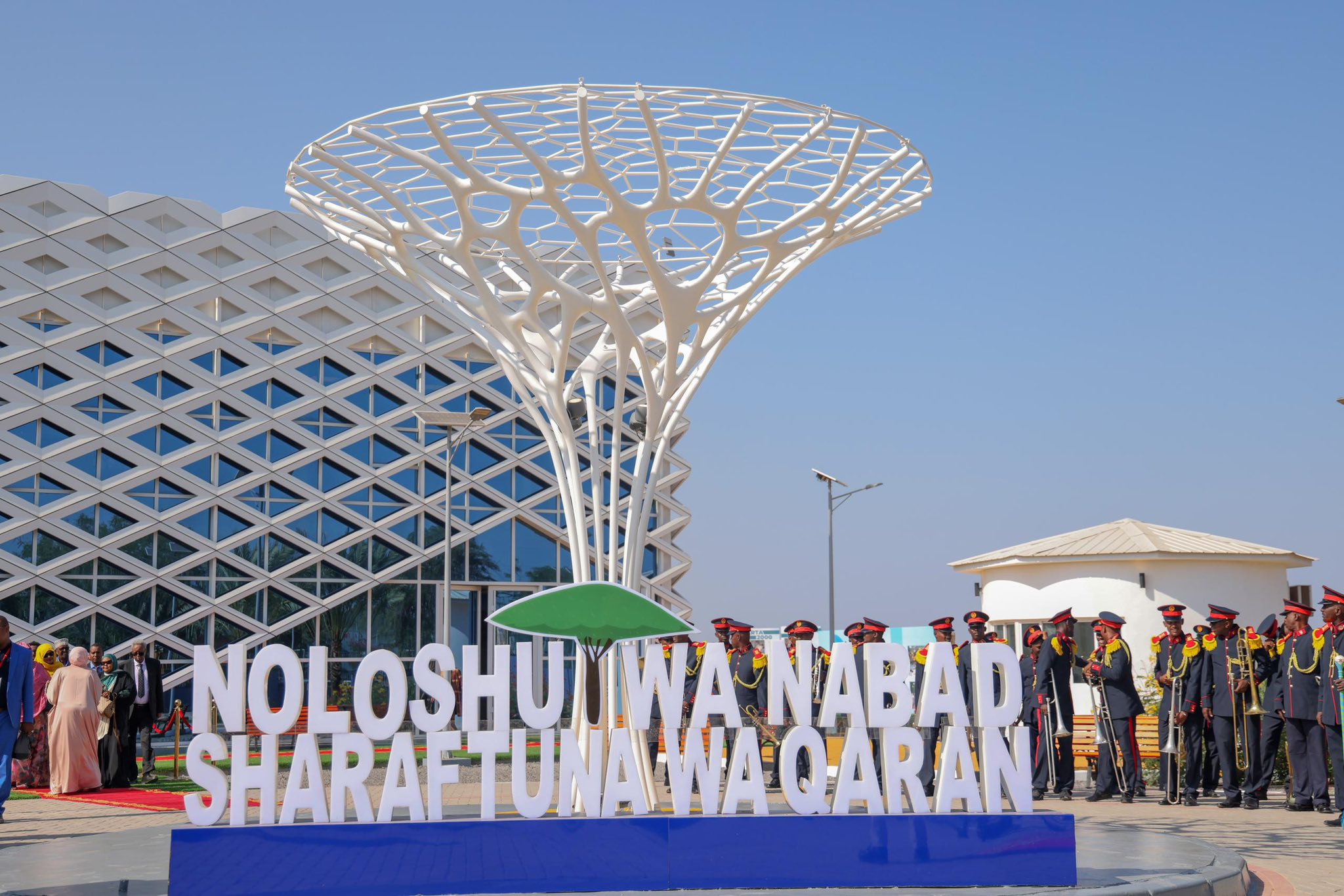A Ceremony Built on a Broken Promise.
A look back at the 2000 Djibouti "peace conference” that deepened division, undermined equality, and continues to cast a shadow over Somali politics.
By Abdirahman Buni
Buni Media, Birmingham, UK
A Ceremony Built on a Broken Promise.
Twenty-five years ago, in the small town of Arta, Djibouti, the international community gathered under the banner of peace to "restore” Somalia. This so-called Somali Peace Conference, held in 2000, was hailed at the time as a turning point — a moment to rebuild a state shattered by civil war and lawlessness.
Today, as Djibouti hosts a grand commemoration marking that event, the question must be asked: peace for whom, and at what cost?
While the organisers of this commemoration speak of unity, statehood, and reconciliation, many Somalis — particularly those from Somaliland — view the Arta Conference as the foundation of injustice, discrimination, and the continuing fragmentation of the Somali state. Far from creating a genuine federal vision, the conference institutionalised inequality through the notorious 4.5 clan power-sharing formula, which divided political representation along clan lines, effectively marginalising entire communities.
A Flawed Beginning
The Arta Conference was presented as an inclusive process — a forum for all Somali stakeholders. In reality, it excluded key groups and prioritised political expediency over justice and equality. The 4.5 system, devised to distribute power among "major clans” while assigning a fraction to so-called "minorities,” was not only undemocratic but deeply demeaning. It entrenched divisions that continue to poison Somali politics to this day.
For Somaliland, which had already restored its sovereignty in 1991 after the collapse of the Somali Republic, Arta represented more than just a flawed peace process — it was an attempt to erase its existence altogether. Somaliland was neither consulted nor represented, yet the conference presumed to speak on behalf of all Somalis, thereby dismissing the legitimate aspirations of a people who had chosen peace, democracy, and self-determination long before the rest of the region.
The Man Behind the Conference
It is also worth recalling the man who took on the project to host this so-called peace conference: Ismaïl Omar Guelleh (born 27 November 1947), often referred to by his initials IOG. Guelleh, a Djiboutian politician who has served as the country’s second president since 1999, is widely regarded as an authoritarian ruler. Many international journalists have compared his leadership style to that of Kim Jong Un in North Korea — a totalitarian regime characterised by repression, absolute control, and the silencing of dissent.
Under Guelleh’s long rule, Djibouti has been criticised for lack of democratic freedoms, human rights abuses, and the manipulation of state power to maintain political dominance. Against that backdrop, the Arta Conference — hosted under his auspices and celebrated as a triumph of diplomacy — appears less a gesture of genuine peace and more a carefully orchestrated political theatre designed to serve regional and personal interests.
Ismaïl Omar Guelleh has long been viewed as the first and most determined enemy of Somaliland’s aspirations. He despises democracy, freedom of speech, and open elections — the very principles on which Somaliland stands. Since assuming leadership in 1999, Guelleh has consolidated power through authoritarian means, suppressing opposition and extending his presidency through questionable constitutional changes.
In stark contrast, Somaliland has peacefully transferred power through democratic elections, witnessing six successive presidents chosen by the will of the people. Where Somaliland has fostered political pluralism and stability, Guelleh’s Djibouti has become a symbol of repression and dynastic rule.
The Political Motives Behind Today’s Commemoration
It is no coincidence that this 25th anniversary commemoration comes at a moment when Somaliland’s quest for international recognition is gaining unprecedented momentum. With the United States Congress scheduled to debate Somaliland’s recognition on 6 December 2025, renewed efforts are underway by some regional actors to undermine that progress.
By glorifying the Arta Conference, these actors seek to reassert the outdated notion of a unified Somali state — a concept that exists only on paper. The event in Djibouti appears less about celebrating peace and more about rewriting history, using nostalgia as a tool to delegitimise Somaliland’s hard-won stability and democratic governance.
A Legacy of Fragmentation, Not Unity
The truth is undeniable: the Arta process laid the groundwork for the fractured, clan-based system that has perpetuated instability in southern Somalia. The Transitional National Government it produced was weak, divisive, and short-lived. Subsequent governments, built on the same 4.5 formula, have fared little better.
Somalia today remains a fragile state — dependent on external support, plagued by corruption, and held hostage by the same clan rivalries that Arta entrenched. Meanwhile, Somaliland has built functioning institutions, conducted multiple peaceful elections, and maintained internal peace — all without the benefit of international recognition.
Rewriting the Narrative
Commemorating Arta as a symbol of "Somali unity” is both misleading and unjust. It erases the painful realities of those who suffered under the 4.5 system and ignores the political maturity demonstrated by Somaliland. True peace cannot be built on denial or discrimination.
As the world turns its attention to the upcoming U.S. congressional debate on Somaliland’s recognition, it is vital to remember that peace is not merely the absence of war — it is the presence of justice, equality, and the freedom to choose one’s destiny.
The Arta Conference may be remembered by some as the rebirth of Somalia, but for many others, it stands as a reminder of a missed opportunity — a moment when the international community chose political convenience over fairness. Twenty-five years on, its legacy remains one of division, not unity.
By Abdirahman Buni
Buni Media, Birmingham, UK
 hadhwanaagnews
hadhwanaagnews